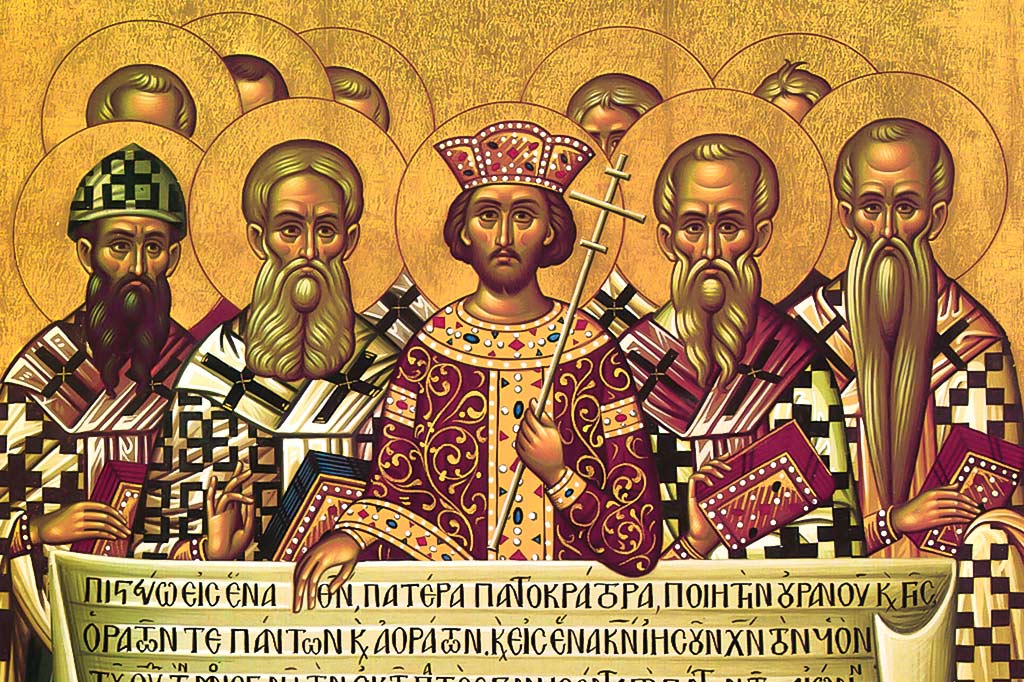DECEMBER 2024
WHY STUDY CHRISTIAN PATRISTICS?
Written by: D.P. Curtin
At this point I have appeared on a number of radio shows and podcast which have asked me about the nature of the Scriptorium Project and what value there is in studying the earliest works of the Church. To me this feels self-evident, but I recognize that I have immersed myself into this work for quite a few years and I do not need to be convinced of its general value. I will address this two fold, as the purpose of the Scriptorium Project is deeply tied to its patristic content. For the otherwise unfamiliar, Christian Patristics is the study of the early church fathers and their writings. It is an extremely vast field that has historically been plagued by the inaccessibility of texts and the sundry languages that they have been composed in. Attempting to give access to these documents if the foundation on which the Scriptorium Project is built, with a particular interest in being able to expose non-academic and church laymen to these foundational documents. Regarding their value specifically, this is a bit more multifaceted. In the interest of brevity let me present their value via a series of bullet points:
UNDERSTANDING CHRISTIAN TEACHING AND ITS POINT OF ORIGIN- Early Church Fathers played a crucial role in shaping core Christian doctrines such as the nature of God, the Trinity, the Incarnation, and the relationship between Christ and the Church. By studying their writings, you gain a clearer understanding of how these foundational beliefs were developed and defended against heresies. Moreover, for Catholics and Orthodox, understanding where particular traditions stem from is salient in understanding their Antiquity.
HISTORIC CONTEXT FOR CHRISTIAN MORAL TEACHINGS- Christian patristics provides context to the early development of Christian theology within the socio-political climate of the Roman Empire, late successor states, or other nations outside of the Roman sphere of influence, such as Armenia and Ethiopia. It helps explain how the early church navigated social and political challenges like persecution, the emergence of heretical movements, and the eventual establishment of orthodox Christianity as the primary and focal institution of the Western World.
UNDERSTANDING THEOLOGICAL DISCOURSE- The early Church Fathers were not only theologians but also philosophers, pastors, counselors, hospitalists, and scholars. They addressed key questions about human nature, salvation, the hereafter, and the relationship between faith and reason. Their writings offer profound reflections on the mysteries of the Christian faith and continue to influence the thought of various Christians around the world. Understanding the quandaries that have historically been present in Christianity inform our understanding of the development of Christian thought through the centuries.
FOUNDATIONS OF ECUMENICAL DIALOGUE- Many denominations, from Roman Catholicism to Eastern Orthodoxy and Protestantism, regard the teachings of the Church Fathers as authoritative, albeit in drastically different ways, and at times, with different Church Fathers. Studying patristics, particularly for the first one thousand years of the church's history provides a shared theological heritage that can foster greater ecumenical dialogue and understanding across Christian traditions.
APPLICATION OF CHRISTIANITY TO CONTEMPORARY ISSUES- Theological challenges faced by the early and medieval Church, such as the relationship between the Creator and creation, the problem of evil, societal obligations, social welfare, and the nature of human freedom, continue to be relevant today. The Church Fathers' insights have been vetted through the centuries and preserved for this purpose, so that they can help frame contemporary theological debates and offer solutions that still resonate.
SPIRITUAL GROWTH AND REFLECTION- The writings of the Church Fathers often reflect deep spirituality and a pastoral concern for the life of the Christian community. Their emotional depth often is able to speak to us because of the familiarity of their contemporary distress. Reading their works can deepen our own personal faith and spirituality, offering timeless counsel on prayer, virtue ethics, and the Christian life.
INTELLECTUAL TRADITION- The Fathers were key players in preserving and transmitting knowledge in a period when much classical learning was in danger of being lost. Through their works, you get a glimpse into the synthesis of Christian faith and Greco-Roman philosophy, especially in thinkers like St. Augustine, St. Ambrose, St. John Chrysostom, Origen, and St. Athanasius. The traditional adage is "we stand on the shoulders of Giants", but this is particularly true in the context of the ancient Church Fathers. So much of our modern world has been informed by their perspective and collective wisdom.

